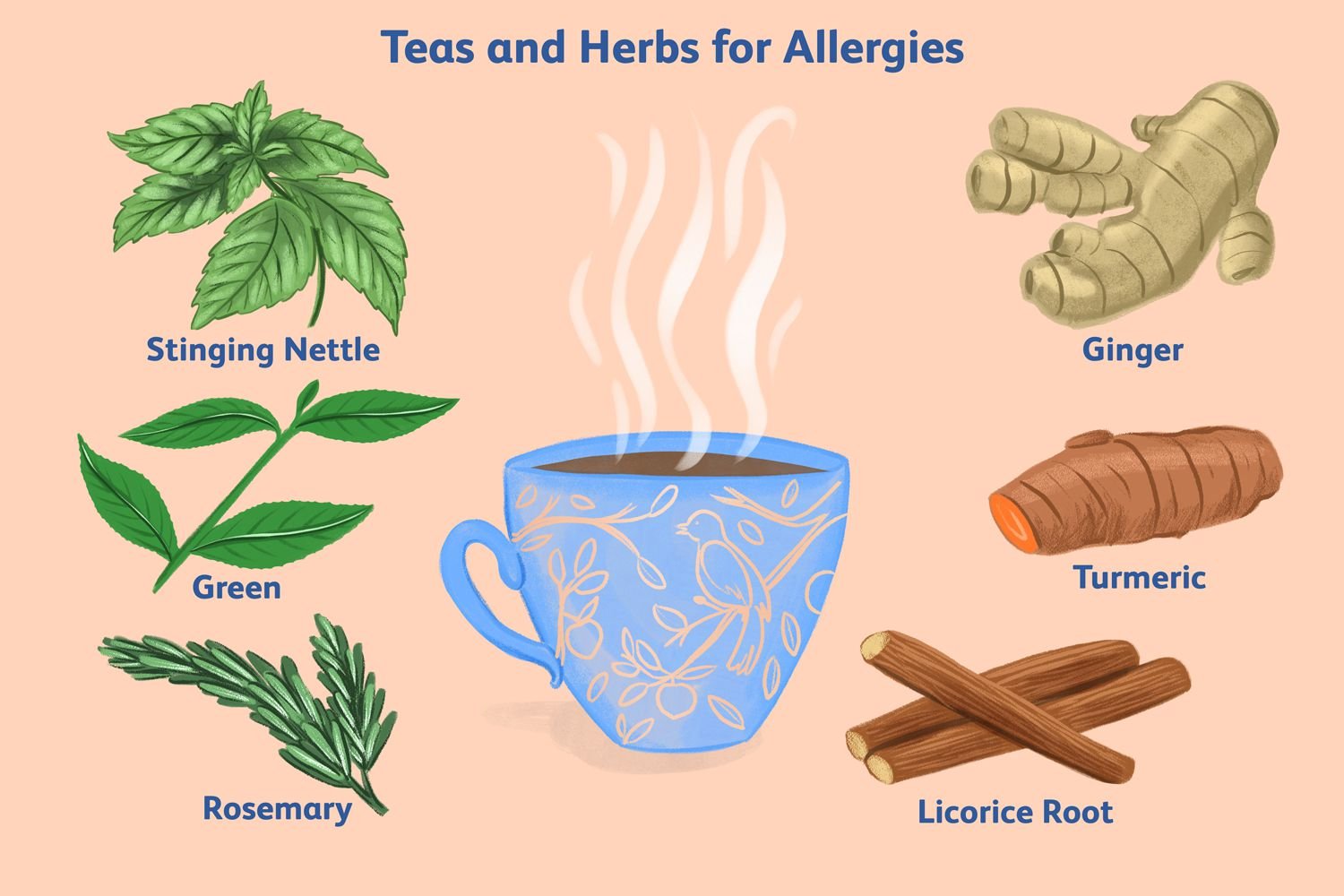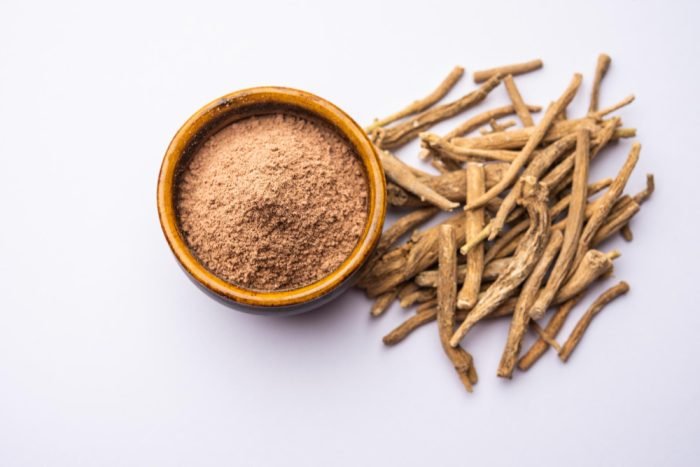Coughing is one of the body’s natural defenses, helping to clear the throat and airways of irritants. However, a persistent cough can be both uncomfortable and disruptive to daily life. Instead of turning to over-the-counter medications, many people are exploring natural remedies to soothe their cough. Herbal treatments, in particular, offer a gentler, more holistic approach to healing, using the power of nature to address the root causes of a persistent cough.
Natural cough suppressants have been used for centuries, offering a wide range of benefits without the side effects that often come with conventional medicines. Whether it’s a dry cough or one accompanied by phlegm, herbal remedies can provide relief and support respiratory health. In this article, we will explore various herbs known for their cough-suppressing properties, offering insights into their effectiveness and how they can help restore comfort and health.
By turning to herbal treatments, you’re not only soothing the symptoms of a cough but also supporting overall wellness. From ancient remedies like honey and licorice root to lesser-known herbs such as marshmallow root and slippery elm, there are numerous options available to help alleviate a persistent cough naturally. Let’s delve into some of the most effective herbal solutions for calming that troublesome tickle in your throat.
Honey: The Age-Old Remedy for Cough Relief

Honey is one of the most well-known and effective natural remedies for cough. Its soothing texture coats the throat, providing immediate relief from irritation while also acting as a mild antibacterial agent to fight infection.
Why Honey Works
Honey’s thick consistency allows it to form a protective layer over the throat, reducing the urge to cough. Studies have shown that honey can be as effective as some over-the-counter cough suppressants. It works best for dry coughs, but can also help with wet coughs by loosening mucus.
Additionally, honey has antimicrobial properties, which means it can help reduce the severity of a cough caused by bacterial infections. For children over the age of one and adults, a spoonful of honey taken directly or mixed with warm water can offer quick relief. However, honey should not be given to infants under one year of age due to the risk of botulism.
How to Use Honey for Coughs
- Simple Remedy: Take a teaspoon of honey directly, 2-3 times a day, especially before bed.
- Honey Tea: Mix a tablespoon of honey in warm (not hot) water with a squeeze of lemon. Drink 2-3 times daily.
- Honey with Ginger: Combine a teaspoon of honey with a small amount of fresh ginger juice. This helps add anti-inflammatory benefits to your cough treatment.
Licorice Root: A Natural Expectorant and Soothing Herb
Licorice root has been used in traditional medicine for centuries, particularly in Chinese medicine, as a natural expectorant and cough suppressant. It works by soothing the mucus membranes in the throat while loosening mucus, making it easier to expel.
Benefits of Licorice Root
Licorice root helps with both dry and wet coughs. Its expectorant properties are particularly useful for people dealing with congestion, as it encourages the body to expel mucus more effectively. Licorice also has anti-inflammatory and immune-boosting properties, making it beneficial for people suffering from respiratory infections.
This herb contains glycyrrhizin, a compound that gives it sweet flavor and medicinal qualities. However, licorice root should be used with caution, especially for people with high blood pressure or kidney issues, as excessive consumption can lead to unwanted side effects.
How to Use Licorice Root
- Licorice Tea: Brew licorice root tea by steeping 1-2 teaspoons of dried licorice root in boiling water for 10 minutes. Drink 2-3 times daily.
- Licorice Syrup: You can find natural licorice syrups at health food stores. Take as directed to soothe a cough.
- Licorice Lozenges: Licorice-based lozenges are another convenient option for suppressing a cough on-the-go.
Marshmallow Root: A Mucilage-Rich Herb for Coughs
Marshmallow root is rich in mucilage, a substance that creates a gel-like coating, providing soothing relief to irritated throat tissues. This makes it an excellent remedy for dry, hacking coughs.
The Soothing Power of Marshmallow Root
The high mucilage content in marshmallow root coats the throat, reducing the irritation that triggers a cough. It also acts as a mild anti-inflammatory, reducing swelling in the airways. Marshmallow root is especially effective for dry, tickly coughs where throat irritation is the primary problem.
Because marshmallow root works by coating the throat, it is important to take it in a form that allows it to come into contact with the throat lining, such as a tea or syrup.
How to Use Marshmallow Root
- Marshmallow Root Tea: Steep 1-2 teaspoons of dried marshmallow root in cold water for several hours. Strain and drink 2-3 times a day.
- Marshmallow Syrup: Purchase marshmallow root syrup from a health food store and take as directed.
- Marshmallow Lozenges: These provide a convenient way to soothe a cough throughout the day.
Slippery Elm: An Ancient Remedy for Cough and Throat Irritation
Slippery elm is another herb rich in mucilage, making it highly effective for treating dry coughs. The inner bark of the slippery elm tree has been used in traditional medicine for centuries to relieve throat irritation and coughs.
Why Slippery Elm Works
Slippery elm’s mucilage content forms a protective layer in the throat, which soothes irritation and reduces the urge to cough. It also contains antioxidants that promote healing and reduce inflammation in the respiratory tract.
This herb is especially helpful for people suffering from a dry, sore throat or a cough caused by throat irritation. It can also be used as a treatment for digestive issues, making it a versatile herb for overall health.
How to Use Slippery Elm
- Slippery Elm Tea: Boil 1-2 teaspoons of slippery elm bark in water for 10 minutes. Drink 2-3 times a day.
- Slippery Elm Lozenges: These are widely available and can be used throughout the day for cough relief.
- Slippery Elm Powder: Mix slippery elm powder with water to create a paste that can be taken to soothe the throat.
Thyme: A Potent Herb with Antimicrobial Properties
Thyme is not only a popular culinary herb, but it also has medicinal uses. It is rich in compounds that help loosen mucus, reduce inflammation, and fight infections. Thyme is an excellent choice for people suffering from a productive cough or bronchitis.
The Benefits of Thyme for Coughs
Thyme’s antimicrobial properties make it effective for coughs related to respiratory infections. It helps relax the muscles in the trachea and bronchi, which can alleviate coughing spasms. Additionally, thyme acts as an expectorant, helping to break down and expel mucus.
How to Use Thyme for Cough Relief
- Thyme Tea: Brew a tea using fresh or dried thyme. Steep 1-2 teaspoons in hot water for 10 minutes, and drink 2-3 times a day.
- Thyme Syrup: You can find herbal syrups containing thyme, often combined with honey or other soothing ingredients.
- Thyme Steam: Add a few drops of thyme essential oil to a bowl of hot water and inhale the steam to relieve congestion and coughing.
Natural cough suppressants offer a gentle, effective way to soothe a persistent cough while supporting overall health. Whether you choose honey, licorice root, marshmallow root, or thyme, these herbs can provide relief without the side effects of conventional medications.
Conclusion
Persistent coughing can be more than a nuisance—it can affect your sleep, work, and quality of life. Fortunately, natural remedies offer a wide range of benefits. From the antibacterial power of honey to the soothing properties of marshmallow root, these herbs provide effective relief without the risks of synthetic medications. By incorporating these herbal treatments into your wellness routine, you can take a proactive approach to respiratory health.
Remember, while natural cough remedies are highly effective, it’s always important to consult with a healthcare professional if your cough persists for more than a few weeks or is accompanied by other concerning symptoms.








